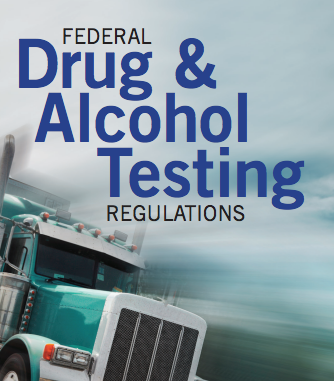
 Request FREE consultation - 1866-758-4529
Request FREE consultation - 1866-758-4529 
For decades, the Federal Motor Carrier Safety Administration has had rules for drug and alcohol testing for commercial truck and bus drivers.
Having a commercial driver’s license (CDL) requires compliance with Department of Transportation (DOT) drug testing requirements, which is critical for driver safety and motor carrier legitimacy.
Drug and alcohol testing is crucial in the trucking industry for accident prevention and public safety. The consequences of impaired driving can be devastating, and the trucking industry has a responsibility to take proactive measures to prevent such incidents.
Having a comprehensive drug and alcohol testing program allows employers to reduce the risk of accidents, enhance driver safety, and maintain a good reputation. Moreover, drug and alcohol testing helps to mitigate the risk of substance abuse among drivers and has long-term benefits for their health and well-being.
By creating a culture of safety and responsibility, the trucking industry can contribute to safer roadways.
Drug and alcohol testing is essential in the trucking industry, playing a pivotal role in accident prevention and ensuring public safety. The consequences of impaired driving can be devastating, and the trucking industry has a responsibility to take proactive measures to prevent such incidents. Implementing a comprehensive drug and alcohol testing program allows employers to reduce the risk of accidents, enhance driver safety, and maintain a positive reputation. Moreover, drug and alcohol testing helps to mitigate the risk of substance abuse among drivers, offering long-term benefits for their health and well-being. By fostering a culture of safety and responsibility, the trucking industry can significantly contribute to safer roadways.
Section 332.603 requires supervisors of commercial motor vehicle drivers to take specialized training on alcohol and drug symptoms and identification.
The regulation requires procedures for alcohol tests to be conducted on drivers involved in accidents, especially CDL holders.
The regulation applies to companies with more than one employee.
Owner-operators are not subject to supervisor testing.
A. The safety regulations require testing for the following classes of substance:
1. marijuana
2. cocaine
3. opiates
4. amphetamines and methamphetamines
5. PCP
All commercial drivers who are operating a commercial motor vehicle or carrying more than 16 passengers must be DOT drug and alcohol tested.
Pre-employment drug testing is required before an employer can let a new CDL driver operate a commercial motor vehicle on a public road.
Post-accident drug testing is required whenever a driver is involved in a fatal accident or receives a ticket from an injury accident or a vehicle-disabling accident. The alcohol test must be done within 8 hours, and the drug test within 32 hours.
Random drug testing is done on an unannounced basis when the driver is “on-duty” or just before or after becoming on-duty.
Suspicion – supervisors can require a driver to be drug or alcohol tested whenever the driver exhibits signs of drug or alcohol abuse.
Follow-up testing is required for those eligible to return to duty. There is a maximum of 5 years for follow-up testing for drivers who tested positive for a refused test.
The drug testing process for truckers involves a series of steps to ensure compliance and safety.
Several types of drug tests are administered to truckers to ensure comprehensive screening for prohibited substances:
Drug tests for truck drivers typically screen for a range of prohibited substances to ensure safety and compliance:
As a truck driver, understanding your responsibilities and rights regarding drug testing is crucial:
By understanding and adhering to these responsibilities and rights, truck drivers can contribute to a safer and more responsible trucking industry.
A positive drug result or an alcohol finding of .04 or more, or if a driver refuses a test, the driver must immediately be removed from operating in a commercial vehicle on public roadways.
A positive test on any driver can make it extremely difficult to obtain new employment or to return to work for the existing employer due to the return-to-duty process required.
While a motor carrier may give a driver a break, the insurance company for the trucking company will, in many instances, effectively prevent drivers who have failed a test from being hired or retained.
Follow-up testing is required after a failed test.
Further information:
https://www.fmcsa.dot.gov/drug-alchohol-brochure/
Related Articles:
Federal motor carrier safety administration proposes new drug testing rules
Drug and Alcohol Rules for CDL Drivers
Medical marijuana and truck drivers